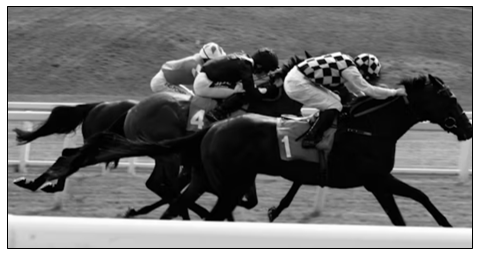by Richard Sweetman
Colorado’s laws concerning gambling, or gaming, were, until recently, unique among the states. However, the tight and unusual restrictions that were associated with Colorado’s embrace of “limited gaming” in 1990 have now disappeared. Legally, our state now looks more like other states that have embraced for-profit gambling over the last 30 years. What happened? Well, here is a quick summary of the evolution of gaming law in Colorado!
The Wild West: Gambling is a popular pastime in late-nineteenth-century Colorado. In frontier towns and mining communities, the absence of law enforcement allows gambling to flourish in saloons and brothels. In Denver, during Colorado’s silver boom, the legendary con man Jefferson Randolph “Soapy” Smith II operates gaming halls and rigged games that target successful silver miners and their newfound wealth.
The silver boom eventually dies out and the miners move on, but migrant workers and families continue arriving to populate the new state of Colorado. As conservative values begin to prevail and local, state, and federal law enforcement agencies are established in the West, gambling is forced out of public spaces.
1948: Colorado voters approve a legislatively referred measure called the Colorado Gambling on Horse and Animal Races Amendment. The new law allows betting on horse races and greyhound races and creates the Colorado Racing Commission. In 1949, live horse racing and greyhound racing begin in Colorado.
1958: Through another ballot measure, Colorado voters amend the state constitution to allow charitable gaming, including bingo and raffles, beginning in 1959.
1982: The Colorado General Assembly creates the Colorado Lottery and the Lottery Division of the Colorado Department of Revenue. In 1983, the Colorado Lottery begins selling tickets.
1990: Voters overwhelmingly (57.3% to 42.7%) pass Amendment 4, a citizen-initiated measure called the Legalization of Limited Gambling Initiative that legalizes “limited gaming” only in the mountain towns of Black Hawk, Central City, and Cripple Creek. In 1991, the initiative becomes law and casinos begin operations. Individual bets can be no more than $5, casinos’ hours of operation are limited to 8 a.m. to 2 a.m., and roulette and craps are not allowed.
 2000: Colorado voters enact Referendum E, a legislatively referred measure that allows the state lottery to begin offering tickets to multistate jackpot drawings such as Powerball and Mega Millions.
2000: Colorado voters enact Referendum E, a legislatively referred measure that allows the state lottery to begin offering tickets to multistate jackpot drawings such as Powerball and Mega Millions.
2008: Through yet another citizens’ initiative (Amendment 50), Colorado voters amend the state constitution to increase the maximum individual bet amount from $5 to $100, allow casinos to operate 24/7, and allow casinos to offer roulette and craps games.
2014: The Colorado General Assembly enacts House Bill 14-1146, which prohibits greyhound racing in Colorado.
2019: Voters narrowly (51.4% to 48.6%) approve Proposition DD, which legalizes sports betting in Colorado. In May 2020, in the midst of the COVID-19 pandemic and associated lockdowns, sports betting – including online sports betting – launches in Colorado. The operations of new sports books in Black Hawk, Central City, and Cripple Creek casinos are initially limited by the situation. But TV and radio advertisements for online sports betting websites suddenly become ubiquitous in Colorado media.
2020: Colorado voters overwhelmingly (60.5% to 39.5%) embrace Amendment 77, which essentially removes any limits on the size of bets and the types of games allowed in Colorado casinos.
2023: The Colorado General Assembly enacts House Bill 23-1041, which prohibits wagering on greyhound races that are conducted on out-of-state tracks and simulcast in Colorado.


